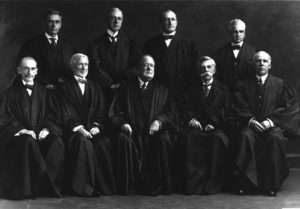In their desperation to get back to work, some Americans are taking to the streets to demand that the government end the quarantine. Comedian Patton Oswalt is unsympathetic.
“Anne Frank spent 2 years hiding in an attic and we’ve been home for just over a month with Netflix, food delivery & video games and there are people risking viral death by storming state capital buildings & screaming, ‘Open Fuddruckers!'” he tweeted on Saturday.
This is hardly Oswalt’s first display of smug liberal condescension: His tweet denouncing Covington Catholic High School student Nick Sandmann as a “leering, privileged little shit” was one of the most vile celebrity attacks on the wrongly maligned teenager.
It may be trivially simple for the Emmy Award-winning comic—and voice of Remy in Pixar’s Ratatouille—to stay at home, watch Netflix, order carry-out, and play video games for a few weeks. (Writer and podcaster Bridget Phetasy compared Oswalt to Marie Antoinette’s apocryphal indifference toward the hungry masses, tweeting: “Let them eat kale!”) But many auto mechanics, coffee baristas, and small business owners can’t afford this so easily. They are watching their financial situations become more and more precarious with each day that extreme social distancing continues. Oswalt suggested that the uncultured rubes are crazy to want Fuddruckers to re-open; people whose livelihoods depend upon places like Fuddruckers might see things differently.
That’s why it’s important for those criticizing misguided protesting efforts—including media figures who increasingly appear to be taking the view that you would have to be a deranged rightwinger to want social distancing to end—not to resort to sneering at the less fortunate. (For example: A guest on MSNBC recently called the protesters, “the Fox News Nazi confederate death cult rump of the Republican Party.) These are terrifying times, and the prospect of hundreds of thousands of deaths means there is very good reason for policymakers to proceed cautiously with reopening. But both federal and state governments must consider the long-term practicality of their coronavirus prevention plans, including whether people will be willing to obey stay-at-home orders for much longer.
While these efforts to slow the spread of COVID-19 remain broadly popular, some Americans are understandably growing frustrated. Protests have cropped up in several states—most notably Michigan, where opposition to the draconian quarantine dictates of Gov. Gretchen Whitmer (D–Mich.) culminated in a drive-through protest of the state capitol last week. Many of the protesters did indeed maintain social distancing, stayed in their cars, or wore masks, though some of the attendees—zanier right-wing types—did not.
Political protests, be they left-leaning or right-leaning, always invite an eclectic crowd: from concerned citizens motivated by legitimate frustrations to professional activists desperate to attach a pro or anti-Trump spin to seemingly any cause. Their tactics, goals, and organizational structure often attract well-deserved criticism: Some of the lockdown protests, for instance, seem to be generically pro-Trump in character, disconnected from the reality that thus far Trump has supported the shutdowns at every critical juncture. Indeed, it’s quite odd to hear protesters chanting “Fire Fauci” while waving MAGA signs: Trump has praised Fauci incessantly and never fails to heed his advice, the media’s attempt create a narrative of mounting tension between the two notwithstanding.
But there are legitimate grievances for protesters to air. Whitmer’s stay-at-home orders were, as Reason‘s Billy Binion put it, a “hot mess,” prohibiting travel between residences (even to relatively uninhabited areas), buying gardening supplies, and motorboats (but not boats with motors). Authorities in New York City have called on people to report each other for failing to abide by the most stringent social distancing measures. People have been stopped, shamed, and arrested for merely going outdoors. Voluntary compliance with social distancing has been remarkable, but forcibly constraining every last person has diminishing returns, and is not a good use of government resources.
That does not mean the quarantine protesters are, as conservative pundit Stephen Moore put it, “modern-day Rosa Parks.” But some of them are justifiably upset, and their frustration should be neither mocked nor ignored.
from Latest – Reason.com https://ift.tt/2XZttjt
via IFTTT

